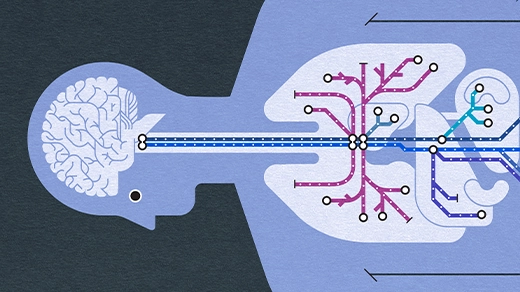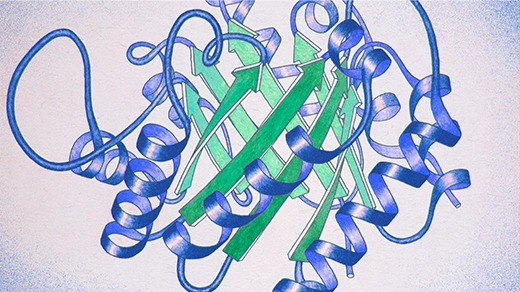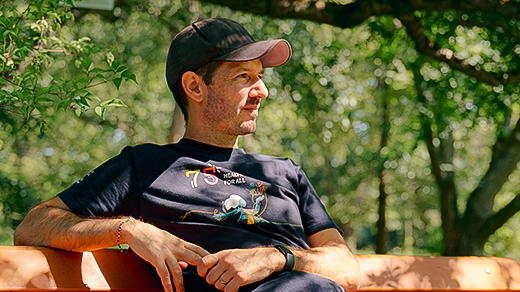What's up in
Biology
Latest Articles
How Our Longest Nerve Orchestrates the Mind-Body Connection
Like a highway system, the vagus nerve branches profusely from your brain through your organs to marshal bodily functions, including aspects of mind such as mood, pleasure and fear.
How Colorful Ribbon Diagrams Became the Face of Proteins
Proteins are often visualized as cascades of curled ribbons and twisted strings, which both reveal and conceal the mess of atoms that make up these impossibly complex molecules.
The Viral Paleontologist Who Unearths Pathogens’ Deep Histories
Sébastien Calvignac-Spencer searches museum jars for genetic traces of flu, measles and other viruses. Their evolutionary stories can help treat modern outbreaks and prepare for future ones.
What Happens in a Mind That Can’t ‘See’ Mental Images
Neuroscience research into people with aphantasia, who don’t experience mental imagery, is revealing how imagination works and demonstrating the sweeping variety in our subjective experiences.
With ‘Digital Twins,’ The Doctor Will See You Now
By creating digital twins of patients, Amanda Randles wants to bring unprecedented precision to medical forecasts.
The Physics of Cold Water May Have Jump-Started Complex Life
When seawater gets cold, it gets viscous. This fact could explain how single-celled ocean creatures became multicellular when the planet was frozen during “Snowball Earth,” according to experiments.
Tight-Knit Microbes Live Together to Make a Vital Nutrient
At sea, biologists discovered microbial partners that together produce nitrogen, a nutrient essential for life. The pair are in the process of merging into a single organism.
How AI Revolutionized Protein Science, but Didn’t End It
Three years ago, Google’s AlphaFold pulled off the biggest artificial intelligence breakthrough in science to date, accelerating molecular research and kindling deep questions about why we do science.
How Is Science Even Possible?
How are scientists able to crack fundamental questions about nature and life? How does math make the complex cosmos understandable? In this episode, the physicist Nigel Goldenfeld and co-host Steven Strogatz explore the deep foundations of the scientific process.








